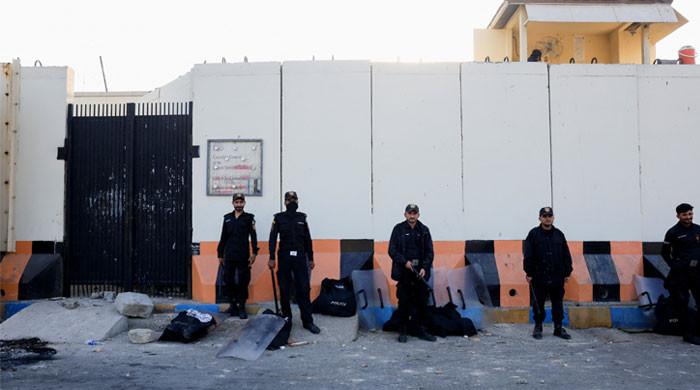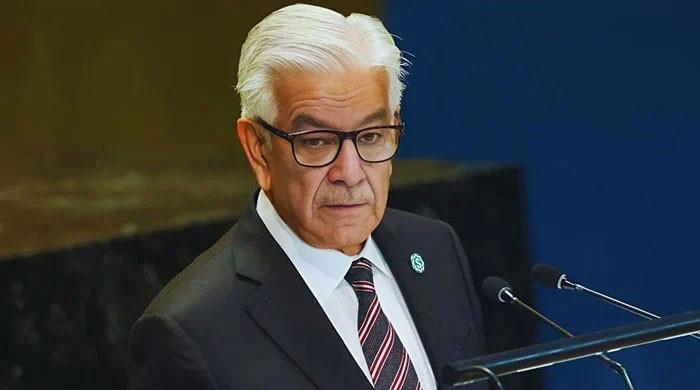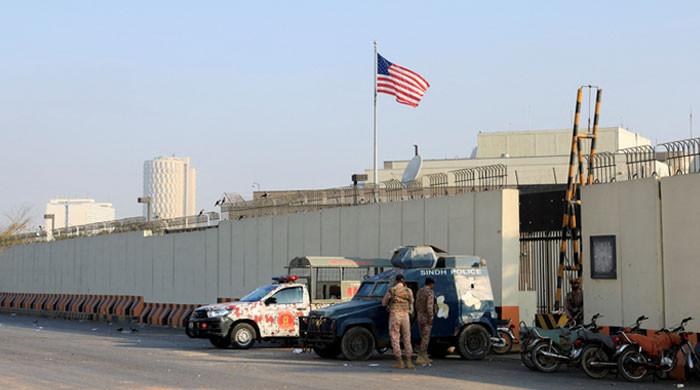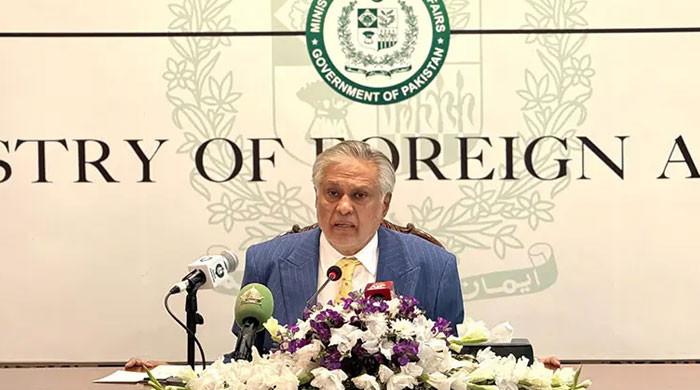Contents of 'threat letter' shouldn't be made public: FO
"An ambassador’s cable is never released for political purposes," says a Foreign Office official
April 09, 2022
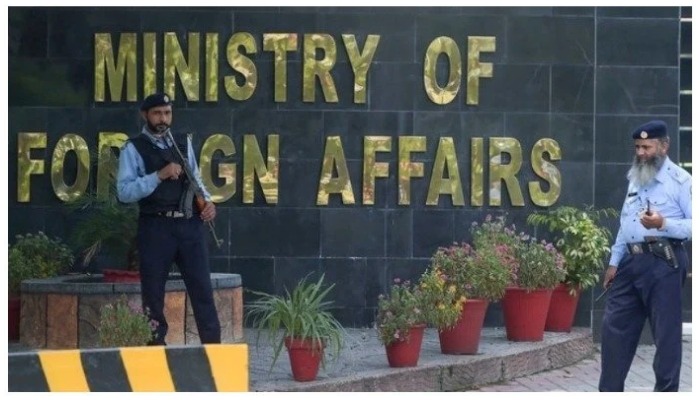
- Making contents of "threat letter" public would harm national interest, says FO.
- "An ambassador’s cable is never released for political purposes," says FO official.
- Use of messages about diplomatic interactions would inhibit the host countries' officials from interacting with their Pakistani counterparts.
ISLAMABAD: The Ministry of Foreign Affairs (MoFA) believes that making the contents of the alleged "threat letter" public would harm the national interest of the country, The News reported Saturday.
Prime Minister Imran Khan spoke about the letter during his live telecast Friday evening and explained what a cipher is — a coded message sent by embassies to their country.
According to the foreign ministry, the coded message sent by the ambassador shouldn't be revealed.
Per the article, a senior official in the Ministry of Foreign Affairs, requesting anonymity, told Geo News: “The Foreign Office thinks overwhelmingly that the foreign secretary shouldn't make public the contents of the (coded) telegram dated March 7.”
"The ambassadors should be encouraged to share their assessments based on their interactions with their interlocutors of the host countries, and any step contrary to this would be detrimental to the national interest," said the official.
He said that this is practised all over the world. "An ambassador’s cable is never released for political purposes. There is not a single example of this,” he added.
Explainer: The Supreme Court’s ruling and the foreign letter
The use of messages about diplomatic interactions would inhibit the host countries' officials from interacting with their Pakistani counterparts, whose job is to keep their headquarters updated with information relevant to their country.




